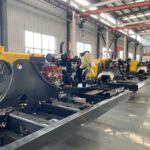Introduction
Compact wheel loaders are versatile machines that have become indispensable in various industries, from construction to agriculture. These machines combine the functionality of a traditional wheel loader with the compactness and maneuverability that make them suitable for tight spaces. In this guide, we will explore the features, benefits, and applications of compact wheel loaders, providing you with a comprehensive understanding of these powerful machines.
What is a Compact Wheel Loader?
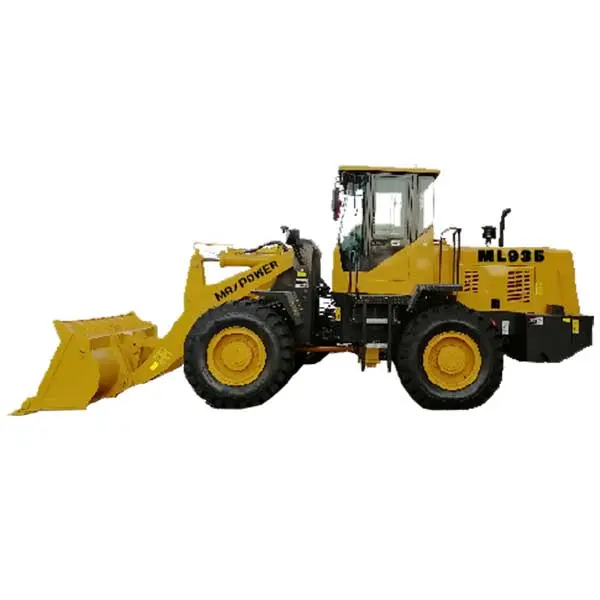
A compact wheel loader is a smaller version of the standard wheel loader, designed to provide the same functionality in confined spaces. They are equipped with a front loader and often a backhoe attachment, allowing for a wide range of tasks, from lifting and carrying to digging and grading.
Key Features of Compact Wheel Loaders
- Compact Design: Allows for operation in tight spaces and areas with limited access.
- Versatility: Capable of performing multiple tasks with the help of various attachments.
- Ease of Use: Often equipped with user-friendly controls and ergonomic designs.
- Fuel Efficiency: Generally more fuel-efficient than larger models due to their smaller size.
Benefits of Using Compact Wheel Loaders
Compact wheel loaders offer several advantages over their larger counterparts, making them an attractive option for many applications.
Efficiency in Small Spaces
The compact design of these loaders grants them the flexibility to operate effectively in confined spaces, a feat unattainable by larger machinery. This unique attribute enables their utilization in environments traditionally inaccessible to bulkier equipment, such as bustling urban construction sites or compact plots on small farms. Their maneuverability and nimbleness make them indispensable assets in navigating tight corners, narrow pathways, and restrictive working conditions, enhancing productivity and efficiency in diverse settings. Whether maneuvering through cramped construction zones or navigating through densely planted fields, compact wheel loaders prove their worth by delivering optimal performance and versatility in areas where larger machines simply cannot tread.
Cost-Effective
Due to their smaller size and simplified construction, compact wheel loaders generally come with lower acquisition costs and reduced operating expenses, rendering them an economically viable option for numerous enterprises. This affordability factor extends beyond initial purchase prices to encompass maintenance, fuel consumption, and overall operational overheads, presenting businesses with a financially prudent solution for their material handling and earthmoving needs.
Environmentally Friendly
Compact wheel loaders, characterized by their diminutive stature and enhanced fuel efficiency, exert a reduced ecological footprint when juxtaposed with their larger counterparts. This attribute underscores their eco-friendliness and sustainability, as they consume less fuel and emit fewer pollutants during operation, contributing to a healthier environment.
Easy Maintenance
The compact dimensions of these loaders not only facilitate efficient operation in confined spaces but also simplify maintenance and repair tasks. Their smaller size enables easier access to components and machinery, streamlining routine maintenance procedures and minimizing downtime. This accessibility translates to quicker troubleshooting and repairs, reducing operational disruptions and enhancing overall productivity. Additionally, their compact design often entails simpler mechanical systems, further facilitating maintenance efforts and ensuring optimal equipment performance over time.
Applications of Compact Wheel Loaders
Compact wheel loaders are used in a variety of industries and applications due to their versatility and compact size.
Construction
They are ideal for small-scale construction projects, site preparation, and digging trenches.
Agriculture
Used for tasks such as feeding livestock, moving bales, and grading land.
Landscaping
Perfect for digging holes, moving soil, and general yard work.
Industrial Maintenance
Employed for loading and unloading materials in warehouses and factories.
Comparison Table: Compact Wheel Loaders vs. Traditional Wheel Loaders
| Feature | Compact Wheel Loaders | Traditional Wheel Loaders |
|---|---|---|
| Size | Compact | Larger |
| Maneuverability | High | Moderate to Low |
| Versatility | High | High |
| Cost | Lower | Higher |
| Fuel Efficiency | Higher | Lower |
| Maintenance | Easier | More Complex |
| Suitable for Tight Spaces | Yes | No, typically |
Factors to Consider When Choosing a Compact Wheel Loader
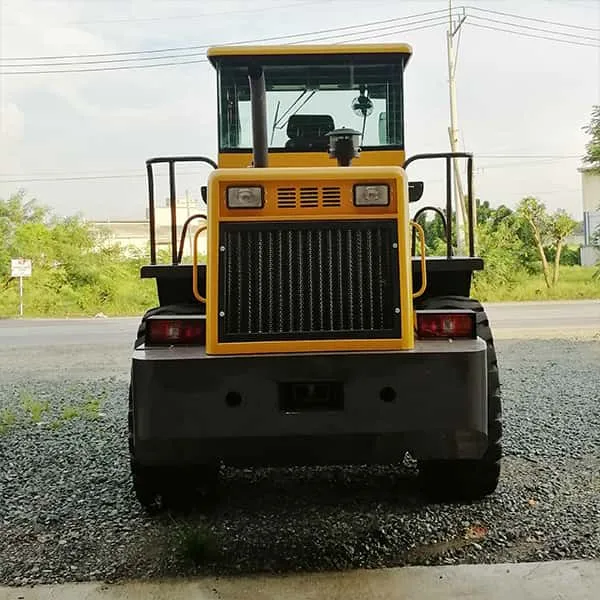
When selecting a compact wheel loader, several factors should be taken into account:
The size of the work area: Ensure the machine can operate comfortably within the space available.
The types of tasks: Choose a loader with the attachments and capabilities needed for the specific job.
Budget: Consider the total cost of ownership, including purchase price, operating costs, and maintenance.
Operator comfort and training: Look for models with ergonomic controls and consider the training required for operators.
Conclusion
Compact wheel loaders are powerful, versatile machines that offer a range of benefits, particularly for applications in tight spaces or where fuel efficiency and cost savings are important. By understanding the features, benefits, and applications of these loaders, you can make an informed decision when choosing the right machine for your needs.
FAQ
Q: How do compact wheel loaders compare to skid-steer loaders in terms of size and versatility?
A: Compact wheel loaders are generally larger and offer better maneuverability in open spaces, while skid-steer loaders excel in extremely tight spaces. Both are versatile with the right attachments.
Q: Are compact wheel loaders suitable for heavy-duty tasks?
A: While compact wheel loaders are powerful, they are designed for lighter to medium-duty tasks. For heavy-duty applications, a larger wheel loader may be more appropriate.
Q: What is the average cost of a compact wheel loader?
A: Prices can vary widely based on the brand, model, features, and age of the machine. Compact wheel loaders typically range from $30,000 to $100,000 new.
Q: How fuel-efficient are compact wheel loaders compared to full-sized models?
A: Compact wheel loaders are generally more fuel-efficient than full-sized models due to their smaller size and lower weight.
Q: Are compact wheel loaders easy to maintain?
A: Yes, their compact size and straightforward design make maintenance and repairs more manageable compared to larger, more complex machinery.

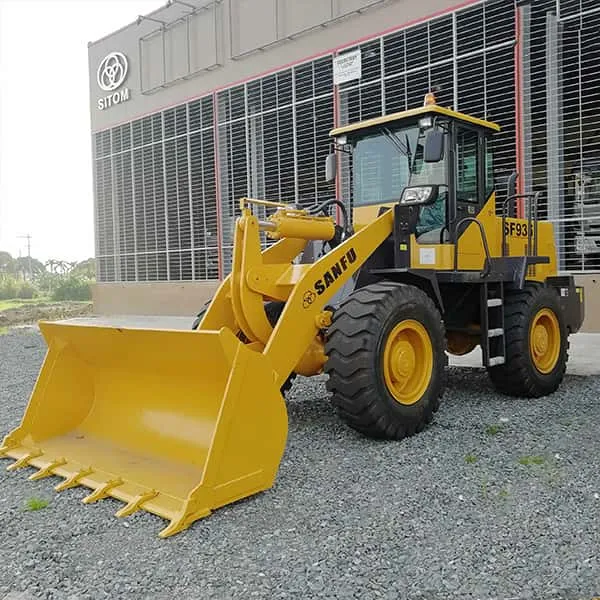


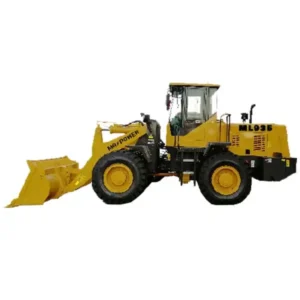


-150x150.webp)
